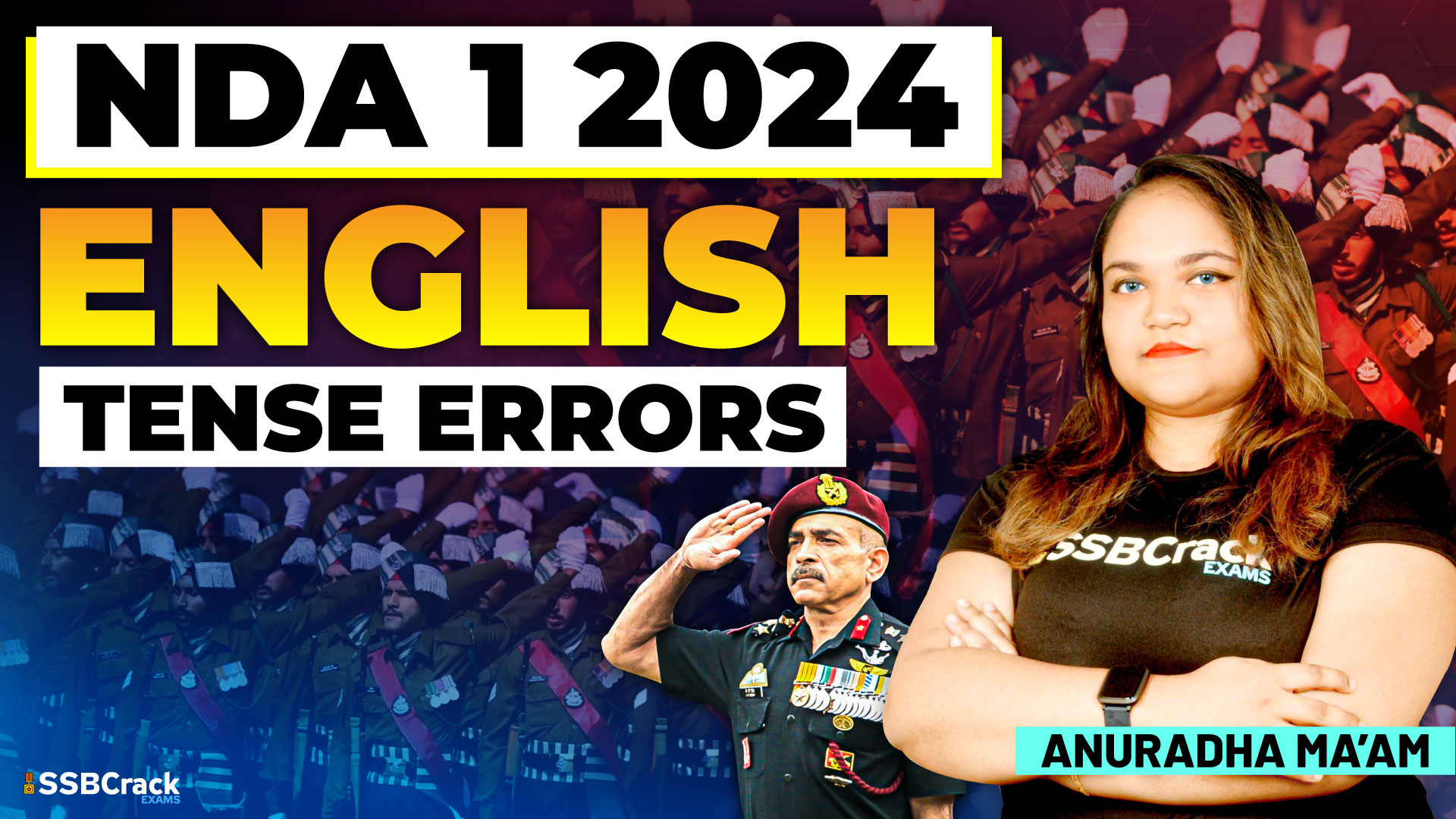The National Defence Academy (NDA) examination is a formidable challenge that shapes individuals aspiring to serve in the esteemed armed forces. Within the English section of the examination, a nuanced understanding of grammar, particularly Tense, is indispensable. This article aims to emphasize the importance of mastering Tense and shed light on various tense errors that NDA aspirants should be wary of while preparing for the exam.
- Tense as a Pillar of Effective Communication: Tense is a critical aspect of grammar that denotes the time at which an action or state of being occurs. In the military, where precision in communication is paramount, mastering tense is crucial. It ensures that officers can convey information accurately and maintain clarity in both written and spoken communication.
- Different Tense Errors to Beware Of:
- Incorrect Verb Forms: Defence aspirants should be vigilant about using the correct verb forms for each tense. Errors like “I have went” instead of “I have gone” can impact the overall accuracy of a sentence.
- Shifting Tenses in a Sentence: Consistency in tense usage is key. Aspirants must avoid unnecessary shifts between tenses within a sentence, ensuring a smooth and coherent flow. For example, “She is studying, and she will go to the gym yesterday” should be corrected to “She is studying, and she will go to the gym tomorrow.”
- Misuse of Present Perfect and Simple Past: Understanding the distinction between the present perfect and simple past is crucial. Errors such as “I have eaten lunch two hours ago” should be corrected to “I ate lunch two hours ago.”
- Incorrect Conditional Tense Usage: Defence aspirants must be cautious with conditional tenses. For instance, using “If I will go to the training, I will learn” should be corrected to “If I go to the training, I will learn.”
- Lack of Agreement Between Tense and Time Expressions: Tense errors often occur when there is a mismatch between the tense used and the time expression. For example, “I will see him yesterday” should be corrected to “I will see him tomorrow.”
Strategies to Avoid Tense Errors:
- Thorough Understanding of Tense Rules: Aspirants should have a comprehensive understanding of the rules governing each tense, including when and how to use them.
- Consistent Practice: Regular practice with exercises focused on tense usage helps reinforce the rules and identify potential errors.
- Contextual Analysis: Analyzing the context of a sentence and considering the temporal sequence of events assists in choosing the appropriate tense.
- Revision and Review: Regularly reviewing and revising tense-related concepts contributes to knowledge retention and the ability to recognize errors more readily.
- Seeking Feedback: Engaging in peer or instructor feedback on written exercises enhances awareness of potential tense errors and fosters improvement.
Conclusion:
In conclusion, a solid grasp of tense is indispensable for NDA aspirants seeking success in the English section of the examination. By being vigilant about common tense errors and implementing strategic study practices, aspirants can fortify their linguistic skills and align themselves with the disciplined communication standards expected in military service. A profound understanding of tense is not merely a test-taking necessity but a foundational skill that contributes to effective communication in the dynamic and challenging environments inherent to a career in the armed forces.







